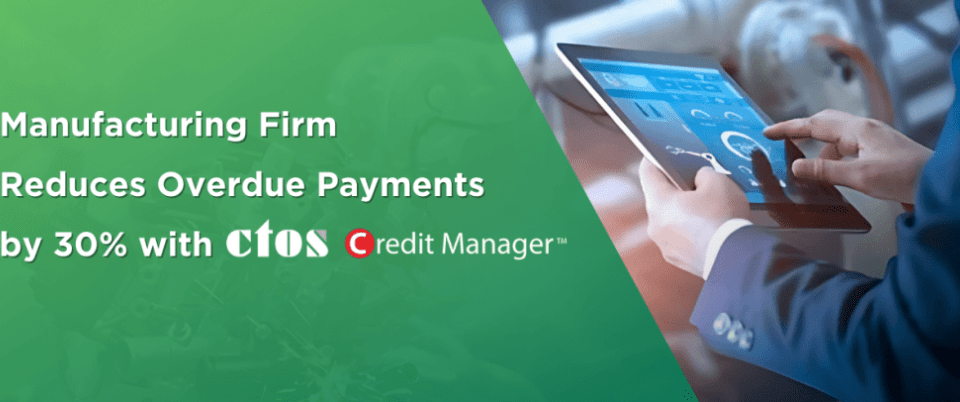
Extending credit is a common practice in business, especially in business-to-business transactions. Companies do this to create instant sales opportunities and promote long-term relationships with customers. However, this practice is not without its risks. To protect your business and make informed decisions, it’s crucial to assess the creditworthiness of potential customers or business partners before extending credit.
Hence, there are several things that you need to know before extending credit to another company as a business owner.
Do a Credit Check on the New Customer
Doing a credit check is an essential step in credit risk management for your business, reducing potential losses and avoiding cash flow issues down the line. You can do this by referring to CTOS Reports in CTOS Credit Manager.
For example, a CTOS Report will contain the following information:
- Section A: Summarized highlights of the entire report (including CTOS SME Score if requested)
- Section B: Company profile (SSM information inclusive of Directorship, Shareholding, Company Charges, Financial Statements, Directorship & Business Parties, Address Records etc)
- Section C: Credit facilities and bank repayment history (via CCRIS)
- Section D: Litigation information
- Section E: Electronic trade references (eTR) submitted by non-bank third parties, e.g. non-payment of credit terms
The information contained in the credit report is indicative of risk. For example, if the CTOS Report shows poor bank repayment history, it may indicate that the potential business partner may have issues repaying their credit terms. In this case, you may want to reconsider partnering with them.
Clearly Define the Terms of the Credit Agreement
When you do decide to extend credit after reviewing their credit report, you need to define the terms of the credit agreement clearly and explicitly. This should include:
- The credit limit.
- Payment terms.
- Interest rates (if applicable).
- Any late fees for missed payments.
If needed, you can also require collateral or a personal guarantee from the business owner or principal in case of default on the credit terms.
Monitor and Review Credit Terms Regularly
Circumstances change over time, and customers that may be financially healthy one day may be in trouble the next. Staying informed on changes to your customers’ business conditions can enable you to take proactive action, such as adjusting credit terms or calling for immediate payment.
Changes to look out for include:
- Worsening financial status
- Unplanned directorship or shareholding changes
- Litigation proceedings
- Bankruptcy proceedings
- Adverse trade references
You can monitor these changes with CTOS Credit Manager, which sends you automatic notifications if any of these changes happen to your customers.
Have a Plan for Late Payments or Defaults
Extending credit is not just about offering it; you also need a plan for late payments or defaults.
- Establish clear policies on how, when, and what steps to take if payment is delayed.
- Include reminders, follow-ups, and escalations if necessary. For example, send a reminder on day 3 after payment is overdue, follow-up via email and phone call every 2 days after, and escalate to collections after 30 days overdue.
- Ensure your customer is aware of how delinquency can impact their current orders. If needed, you can work out a payment plan for distressed customers.
- Have a plan for bad debts. Typically, if a payment is over 180 days late, it may not be recoverable and is considered bad debt.
Instead of writing off bad debt, you can submit an electronic trade reference (eTR) to CTOS’ database. This submission negatively affects the company’s credit score, preventing the customer from securing loans or credit from other suppliers. This encourages prompt payment to address the debt.
Adopting a ‘trust, but verify’ approach to credit risk management allows your business to expand while safeguarding your financial well-being.
With CTOS Credit Manager, you can evaluate new business partners with CTOS’ comprehensive credit report on both companies and individuals. Performing pre-credit screening and due diligence is now easier than ever with a dynamic platform to search, store, monitor and manage all your customer information.




